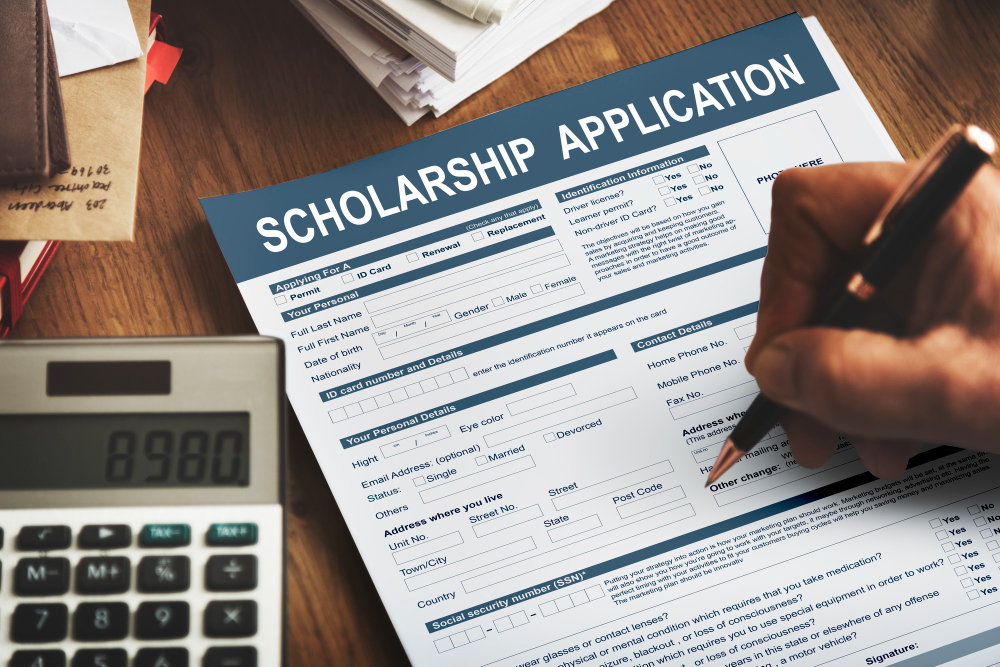Applying for scholarships can be a game-changer in reducing the financial burden of higher education. However, many students make avoidable mistakes that cost them valuable opportunities. A single error can mean the difference between winning a scholarship and missing out. To increase your chances of success, it’s essential to understand common scholarship application mistakes and how to avoid them.
1. Missing the Deadline
The Mistake:
Many students fail to submit their scholarship applications on time. Deadlines are strict, and late applications are often disqualified without consideration.
How to Avoid It:
- Create a calendar with all scholarship deadlines and set reminders well in advance.
- Start working on your applications early to avoid last-minute rushes.
- Aim to submit at least a few days before the deadline in case of technical issues.
2. Not Following Instructions
The Mistake:
Each scholarship has unique requirements, including word count limits, formatting rules, and specific essay prompts. Ignoring these guidelines can lead to disqualification.
How to Avoid It:
- Read the application instructions carefully, multiple times if needed.
- Ensure your essay, resume, and other materials meet the specified requirements.
- Double-check before submitting to confirm compliance.
3. Submitting a Generic Essay
The Mistake:
Many students use the same essay for multiple scholarships without tailoring it to the specific prompt or organization. This makes applications feel impersonal and less compelling.
How to Avoid It:
- Customize each essay to reflect the values and goals of the scholarship provider.
- Use specific examples that align with the scholarship’s mission.
- Address the essay prompt directly and stay focused on the topic.
4. Ignoring Grammar and Spelling Errors
The Mistake:
Submitting an application with typos, grammatical mistakes, and poorly structured sentences reflects a lack of effort and professionalism.
How to Avoid It:
- Proofread your application multiple times.
- Use tools like Grammarly or ask a teacher, mentor, or friend to review your application.
- Read your essay out loud to catch awkward phrasing.
5. Providing Insufficient or Incorrect Information
The Mistake:
Some applicants fail to provide all the required details, such as transcripts, recommendation letters, or financial information. Others make careless errors when filling out forms.
How to Avoid It:
- Make a checklist of all required documents before starting your application.
- Review your personal details, academic records, and financial information for accuracy.
- If a document is missing or delayed, communicate with the scholarship committee.
6. Choosing the Wrong Recommenders
The Mistake:
Some students ask for recommendation letters from people who don’t know them well or who fail to provide a strong endorsement. A vague or weak recommendation can hurt your chances.
How to Avoid It:
- Request letters from teachers, mentors, or employers who know you well and can speak to your strengths.
- Give your recommenders enough time to write a thoughtful letter.
- Provide them with details about the scholarship and your achievements to help them personalize the letter.
7. Applying for the Wrong Scholarships
The Mistake:
Some students apply for scholarships they are not eligible for, wasting time on applications that will be automatically rejected.
How to Avoid It:
- Carefully read the eligibility criteria before applying.
- Focus on scholarships that match your background, academic performance, interests, and financial needs.
- Use scholarship search engines to find opportunities that align with your qualifications.
8. Overlooking Small or Local Scholarships
The Mistake:
Many students focus only on big national scholarships and ignore smaller or local opportunities, which often have less competition.
How to Avoid It:
- Apply for local scholarships offered by community organizations, businesses, and foundations.
- Don’t dismiss scholarships with smaller awards—they can add up over time.
- Check with your school’s guidance office for lesser-known scholarship opportunities.
9. Failing to Showcase Achievements and Strengths
The Mistake:
Some applicants underplay their accomplishments or fail to effectively highlight their strengths in their essays and resumes.
How to Avoid It:
- Clearly showcase your academic achievements, leadership roles, volunteer work, and extracurricular activities.
- Use concrete examples and quantifiable achievements (e.g., “raised $5,000 for a charity event” instead of “helped with fundraising”).
- Be confident but honest—don’t exaggerate or fabricate details.
10. Not Seeking Feedback
The Mistake:
Some students submit their applications without getting feedback, leading to missed errors or weak arguments.
How to Avoid It:
- Ask a teacher, mentor, or family member to review your application.
- Get feedback on clarity, grammar, and whether your essay effectively answers the prompt.
- Revise based on the feedback before submitting.
11. Forgetting to Follow Up
The Mistake:
Many students submit applications and never check back, missing important updates or additional requirements.
How to Avoid It:
- Keep track of the scholarships you apply for and note follow-up dates.
- Check your email regularly for updates from scholarship committees.
- If allowed, send a polite follow-up email inquiring about your application status.
12. Giving Up Too Easily
The Mistake:
Some students stop applying after a few rejections, thinking they will never win. However, scholarships are competitive, and persistence is key.
How to Avoid It:
- Don’t get discouraged by rejection—learn from feedback and improve your future applications.
- Apply for multiple scholarships to increase your chances.
- Stay consistent and keep looking for new opportunities throughout your academic journey.
Final Thoughts
Winning a scholarship requires effort, attention to detail, and persistence. By avoiding common mistakes—such as missing deadlines, submitting generic essays, and overlooking small scholarships—you can improve your chances of success. Take your time, plan ahead, and present yourself in the best possible light. With determination and a well-prepared application, you can secure the financial support you need to achieve your educational goals.
